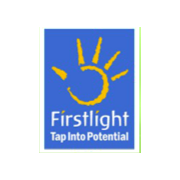  Firstlight Firstlight
Firstlight symbolizes the dawn of a new day; the best time for tapping rubber trees. Dawn is a symbol of birth and reawakening, bringing hope for happiness and improvement.
The Firstlight initiative reflects DPL’s commitment towards business sustainability in which economic, environmental, and social factors are integrated so as to empower smallholder rubber farmers to achieve their full potential and make the transition to a brighter future.
Firstlight ensures a fair price for field latex. It educates and empowers farmers to optimize their real income. Additionally, it provides implements and input materials to protect and augment the crop.
Smallholders make up 65% of Sri Lanka’s national rubber crop. Rubber accounts for 0.2% of the Island’s GDP. Therefore, sustaining smallholder farmers is vital for the continuity of the rubber finished products industry. In its own small way, Firstlight makes it viable for the small farmers to remain with the crop.
Firstlight cares for the environment. It helps to preserve the environment as rubber lands extend the forest cover of Sri Lanka.
Further the programme addresses wide ranging issues impacting the lives of smallholders: from the youngest to the eldest members of their communities. Health, education and recreation are areas of focus.
Firstlight Principles
- Help smallholder farmers realize their potential
- Fair price for field latex
- Education and empowerment
- Supply of implements / input material
- Sustaining of rubber properties and the industry
- Preserving forest cover
- Community capacity building
Fair price for field latex
Traditionally the price paid to rubber smallholders has often been arbitrary and exploitative.
Through Firstlight, the price paid to the farmer is indexed to RSS1, the highest grade of the most consumed form of raw rubber. Complete transparency is maintained since the price is based on published Colombo RSS1 auction prices.
Smallholders receive a better price as opposed to other available options, such as:
- Sale through middlemen with their margin
- Sale as RSS in the village at arbitrary price based on RSS3/RSS5
The price is not discounted for the middlemen's margin and only for the conversion from field latex to RSS1 and the resultant RSS grade percentage. Payment for rubber supplied is made twice a month, timely and on fixed dates. A secure payment system is in place through the rural banking network.
Education and empowerment
Education is the path out of poverty and the route to equitable development.
Local language newsletters published quarterly disseminate information on best practices to the farmers on subjects such as;
- Preparation of soil and soil conservation
- Importance of high quality plant material
- Planting methods
- Tapping techniques
- Harvest improvement
- Field upkeep
- Diseases affecting rubber and prevention
Practical training is an integral part of Firstlight. Training on tapping techniques, conservation of bark, field hygiene and maintenance of rubber fields too are conducted.
Formal classroom sessions on 5S in rubber plantations, planting, tapping techniques, quality control and productivity improvement are organized to educate the farmers to increase their productivity and income.
Implements and input material
Firstlight emphasizes and encourages quality, efficiency, safety and adoption of best practices on rubber farms.
Special collection cups and high quality tapping knives provided by Firstlight enables the farmers to increase their income. The special collecting cups improve field latex hygiene by preventing putrefaction leading to higher quality latex and thereby higher price for their produce. Wastage is minimized by reduction of scrap.
Lack of high-grade planting material is a major issue for the small farmer. Providing materials to set up and maintain plant nurseries is an area of focus of Firstlight.
The programme also proposes to supply in the near future input material such as rain guards, aprons and fertilizer at concessionary prices.
Sustaining of rubber properties and the industry
Smallholders account for 65% of Sri Lanka’s national rubber crop and rubber accounts for 0.2% of Sri Lanka’s National GDP.
DPL today consumes 6% of Sri Lanka’s rubber production and 70% of our requirement comes from 3,000 small farmers mostly owning less than two hectors.
Albeit in a small way, Firstlight makes it viable for small farmers to earn a living from rubber.
Sustenance of the small farmers is vital for the continuity of the rubber finished products industry in Sri Lanka.
Preserving forest cover
Firstlight offers counter pressure to urbanization and deforestation. Deforestation is a major concern in the country as forest lands are increasingly cleared for food cultivation and housing. The impact of deforestation on global warming and climate change is well known. Rubber lands, often referred to as man-made forests preserve air quality, help in climate / rainfall regulation and soil conservation: in part they help fight global warming and ozone depletion.
Community capacity building
Firstlight continually seeks to assist farmers and their communities located in the most economically disadvantaged areas of Sri Lanka. Firstlight sponsored projects include:
- Health clinics
- Provision of educational materials and other assistance to schools
- Recreational facilities for schools and sports clubs
- Village social events
400 Deans Road
Colombo 10
Sri Lanka.
Mrs K. Meewanage
400 Deans Road
Colombo 10
Sri Lanka
Tel 011-551-8276 |

